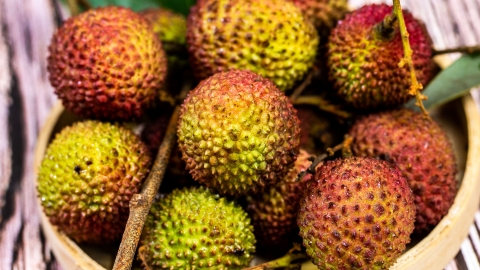Can children eat lychee?
Generally speaking, children can eat lychees, but this should be determined according to their age, physical condition, and health status. Children of appropriate age without allergies, abnormal blood sugar levels, or other related health issues may consume lychees in moderation. However, lychees are not recommended for children with a history of allergies, high blood sugar levels, or weak gastrointestinal function. Detailed analysis is as follows:

Children over the age of three who have normal gastrointestinal function, no history of lychee allergy, and stable blood sugar levels may benefit from moderate lychee consumption. Lychees can provide nutrients such as vitamins and glucose. Their sweetness can stimulate appetite, and their rich dietary fiber content contributes to intestinal health, offering certain benefits for growth and development.
Children allergic to lychees might experience allergic reactions such as itching skin and red rashes after consumption. For children with diabetes or poor blood sugar control, lychees' high sugar content may cause rapid increases in blood sugar levels, negatively affecting health. Young children, particularly those under three years old or with weak gastrointestinal function, may find lychees difficult to digest. Overconsumption could lead to indigestion symptoms such as bloating and diarrhea.
When children eat lychees, the quantity consumed should be controlled, and excessive intake should be avoided. It is recommended to peel and remove the pit before cutting the lychee into pieces for consumption, to prevent choking. Additionally, monitor the child's physical reaction after eating lychees closely. If any discomfort occurs, consumption should be stopped immediately. A balanced diet including other fruits and vegetables should be maintained to ensure comprehensive nutrient intake.








